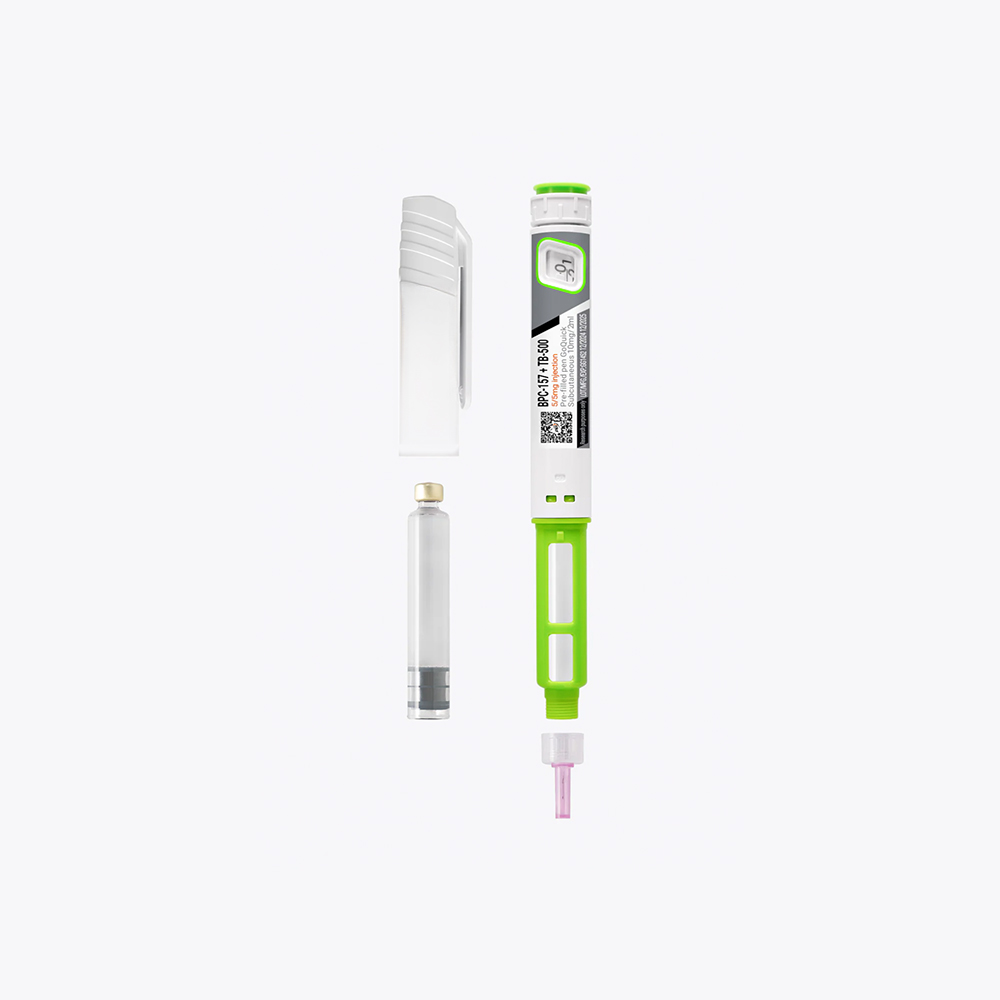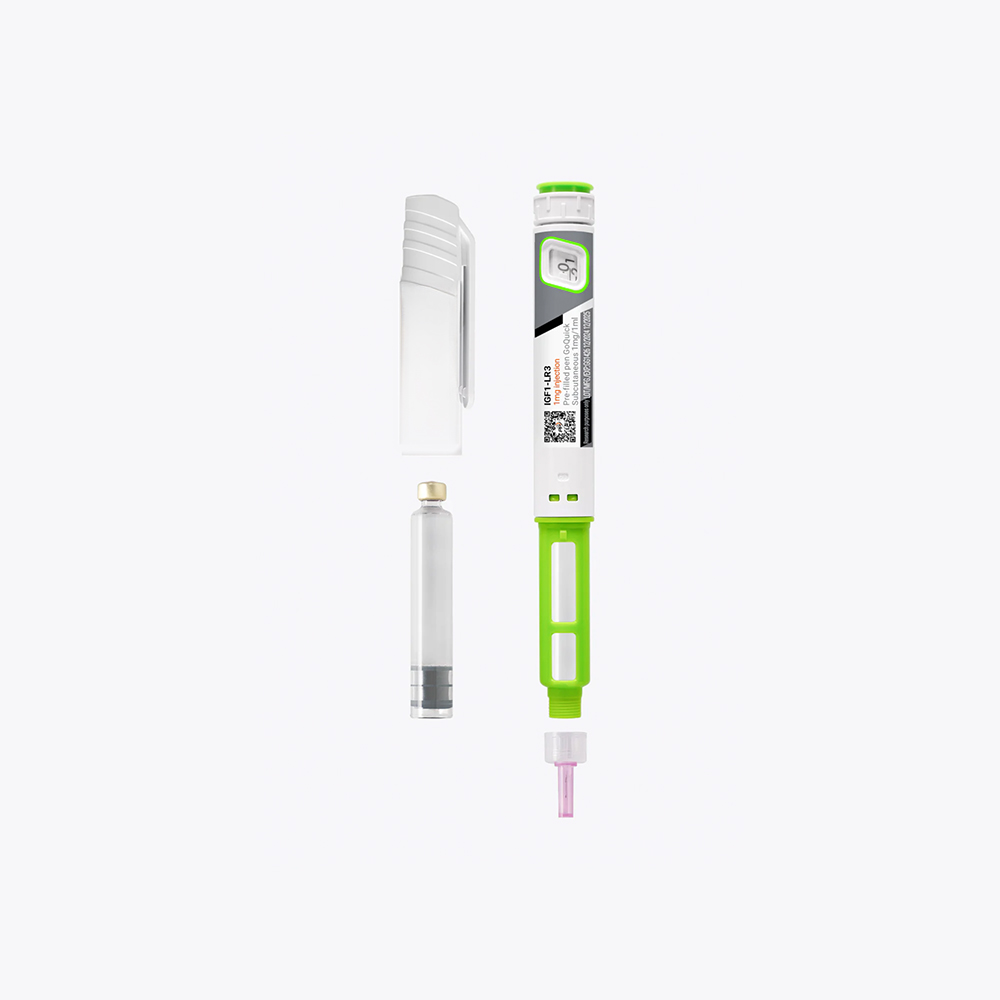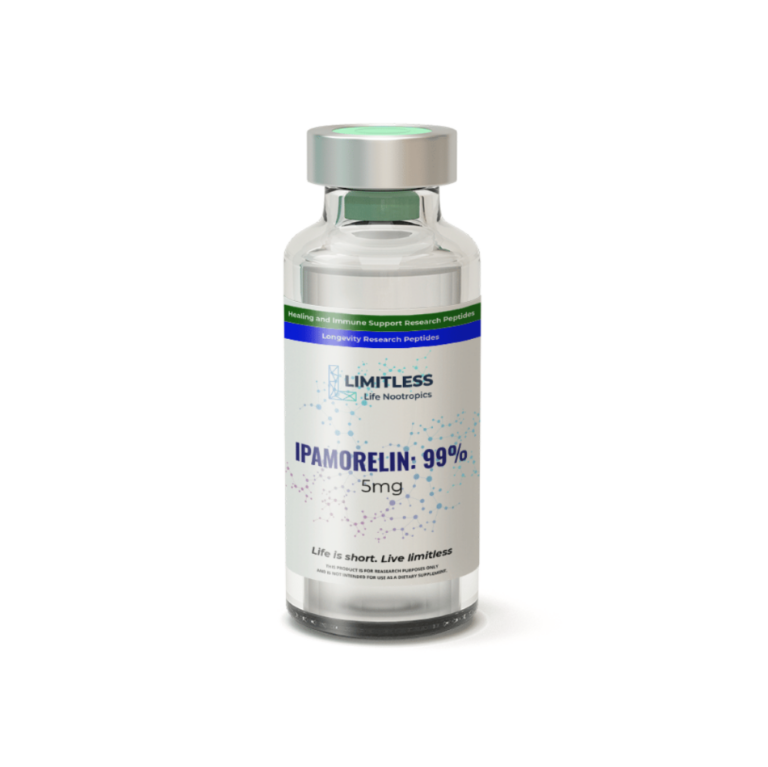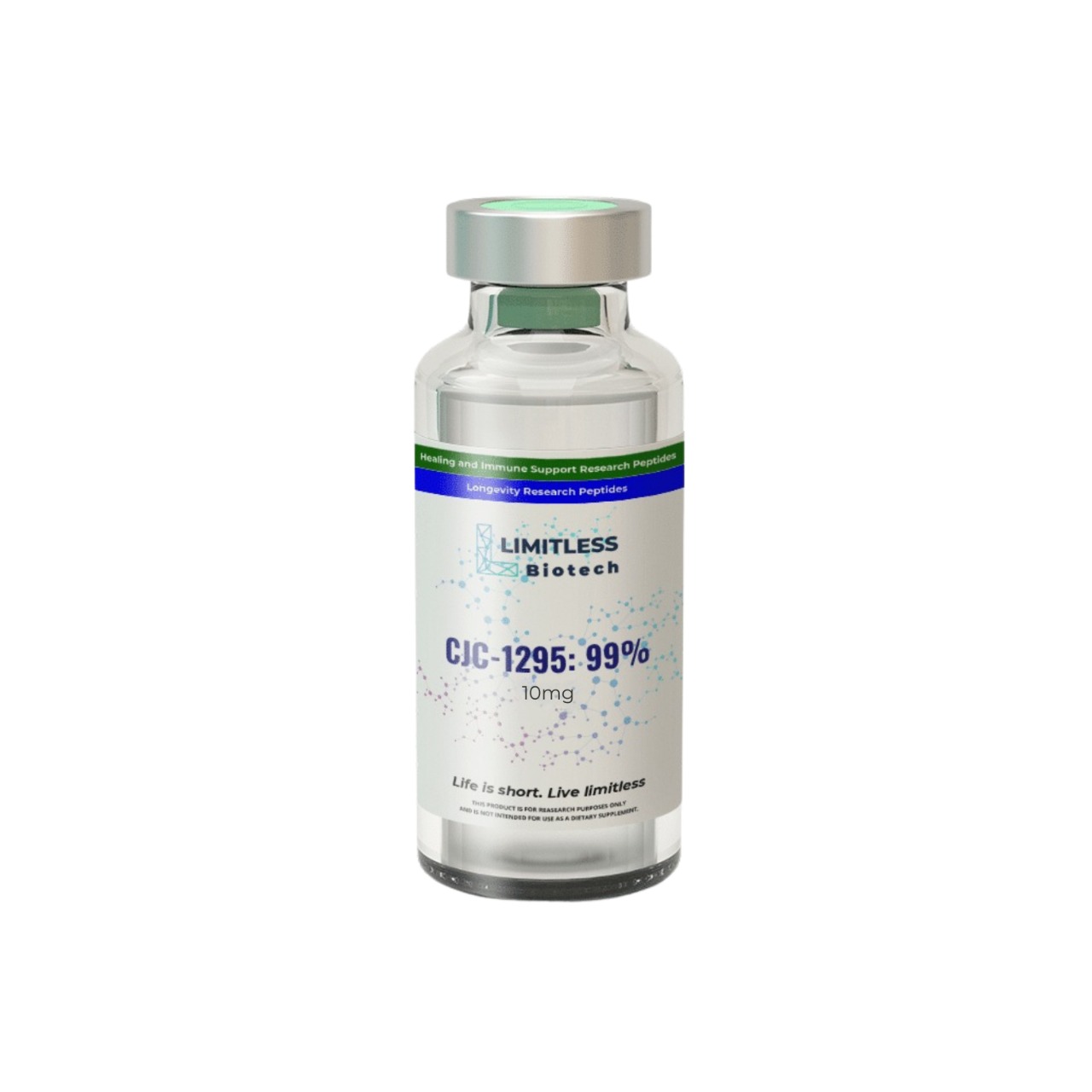Growth Hormone Peptides: Research the Potential Benefits and Uses
In the UK, growth hormone peptides, also known as HGH peptides, growth hormone-releasing peptides (GHRPs), or growth hormone secretagogues (GHS), have gained significant attention within the bodybuilding and fitness communities.
These powerful molecules are believed to stimulate the production and release of human growth hormone (HGH), a crucial hormone for cellular growth, muscle development, and fat metabolism. While the potential benefits of GHS peptides in bodybuilding and athletic performance are widely discussed, the scientific evidence supporting their efficacy remains limited.
As the popularity of HGH peptides continues to rise, it is essential to understand their mechanisms, potential benefits, and the regulatory landscape surrounding their use in the UK.
✓ Fast delivery
✓ Premium Quality
✓ 3rd party tested
IGF 1 LR3 1mg | Peptide Pen
€249.00Ipamorelin (5MG)
€50.00What are growth hormone peptides?
Peptides are short chains of amino acids, which are the building blocks of proteins. These peptides exist naturally in the body and can also be found in various food sources such as meat, fish, dairy, eggs, beans, lentils, and whole grains. Manufacturers can isolate these peptides or create them by combining individual amino acids.
Short chains of amino acids
The structure of growth hormone peptides is similar to that of certain hormones or messaging compounds already present in the body, allowing them to interact with various receptors throughout the body. This unique characteristic makes peptides particularly appealing to bodybuilders, as they have the potential to boost the release of hormones known to stimulate muscle growth, body fat loss, and exercise performance and recovery.
Potential benefits for bodybuilding
- Growth hormone peptides may stimulate the release of human growth hormone (HGH), which is essential for building and maintaining muscle mass.
- Certain growth hormone peptides could promote enhanced fat burning and promote the loss of unwanted body fat.
- Some peptides have been shown to improve exercise performance and aid in recovery after intense workouts.
Overall, the potential benefits of growth hormone peptides make them an intriguing area of research and interest for bodybuilders and fitness enthusiasts alike.
How do growth hormone peptides work?
Growth hormone peptides, such as growth hormone-releasing peptide (GHRP) and growth hormone-releasing peptide 2 (GHRP-2), can help stimulate the production and secretion of human growth hormone (HGH) from the pituitary gland. This process is crucial as HGH plays a vital role in regulating various bodily functions, including muscle growth, fat loss, and overall metabolic processes.
Stimulating human growth hormone production
The unique structure of growth hormone peptides allows them to interact with and activate specific receptors throughout the body, which can then influence the secretion of HGH. This is achieved by imitating the action of natural hormones and signaling compounds, thereby triggering the pituitary gland to release more HGH into the bloodstream.
Once released, HGH can then stimulate the liver to produce insulin-like growth factor (IGF-1), a key player in muscle protein synthesis and fat breakdown. This cascade of events ultimately leads to the beneficial effects associated with increased growth hormone levels, such as enhanced muscle growth, improved body composition, and potentially better recovery from exercise.
Types of growth hormone peptides
The most popular growth hormone secretagogues (GHS) used for bodybuilding and performance enhancement include growth hormone-releasing hormones (GHRHs) and ghrelin mimetics. GHRHs, such as sermorelin, tesamorelin, and CJC-1295, stimulate the pituitary gland to increase the production and release of human growth hormone (HGH). Meanwhile, ghrelin and ghrelin mimetics, including ipamorelin, lenomorelin, anamorelin, macimorelin, and tabimorelin, indirectly boost HGH levels by activating the ghrelin receptor.
Growth hormone releasing hormones
Growth hormone-releasing hormones (GHRHs) are a class of peptides that directly stimulate the pituitary gland to produce and release higher levels of HGH. These peptides include:
- Sermorelin
- Tesamorelin
- CJC-1295
Ghrelin and Ghrelin Mimetics
Ghrelin is a hormone that naturally triggers the release of growth hormone. Ghrelin mimetics are synthetic compounds that mimic the effects of ghrelin, leading to increased HGH production. Examples of ghrelin mimetics include:
- Ipamorelin
- Lenomorelin
- Anamorelin
- Macimorelin
- Tabimorelin
Each of these peptides ultimately stimulates the production and release of HGH, although they may do so through slightly different mechanisms. Understanding the various types of growth hormone peptides is crucial for individuals seeking to optimize their bodybuilding and performance goals.
Potential benefits of growth hormone peptides
Bodybuilders and fitness enthusiasts are often intrigued by the potential benefits of growth hormone peptides. These short chains of amino acids have garnered attention for their ability to stimulate the release of human growth hormone (HGH), which can lead to enhanced muscle growth and fat loss.
Increased muscle mass and strength
Growth hormone peptides may promote increased muscle mass and strength by stimulating the liver to release insulin-like growth factor-1 (IGF-1). This growth factor triggers muscle protein production, leading to muscle growth and development. Additionally, HGH can enhance the breakdown of body fat, further contributing to a lean, muscular physique.
Enhanced fat loss
The benefits of growth hormone peptides extend beyond muscle growth. By stimulating the production of human growth hormone, these peptides could promote the breakdown of body fat, resulting in enhanced fat loss. This is particularly beneficial for bodybuilders and athletes who are focused on improving their body composition and achieving a leaner, more defined physique.
Other potential benefits
HGH peptides have also been associated with:
- Improved recovery from exercise and injuries
- Enhanced bone density
- Better sleep quality
- Increased energy levels
- A more youthful appearance
- Support for healthy pituitary function
While the benefits of growth hormone peptides for bodybuilding and fitness are promising, it’s important to note that research on their specific effects on well-trained individuals, such as bodybuilders, is still limited. Nonetheless, the potential to increase muscle mass and strength, as well as enhance fat loss, make HGH peptides an intriguing area of exploration for those seeking to optimize their physical performance and aesthetics.
Side effects of growth hormone peptides
While HGH peptides have gained popularity in the fitness industry for their potential benefits in promoting muscle growth and aiding fat loss, it’s crucial to understand the possible side effects associated with their use. According to recent studies, the long-term safety of these peptides is not yet fully established, as the research investigating their safety has been limited in both size and duration.
Some of the commonly reported side effects of growth hormone peptides include:
- Increased appetite
- Elevated blood sugar levels
- Fluid retention
- Decreased insulin sensitivity
- Risk of contamination from non-sterile needles
These peptides may also decrease the body’s sensitivity to the hormone insulin, making it more challenging to maintain normal blood sugar levels. Additionally, there is a risk of contamination if individuals use non-sterile needles to inject the peptides.
Given the uncertain long-term safety of HGH peptides, their off-label or nonprescription use is generally not recommended. Individuals considering the use of these peptides should consult with a healthcare professional to weigh the potential benefits against the risks and explore safer, natural alternatives for muscle growth and fat loss, such as resistance training, a balanced diet, and the use of supplements like creatine and whey protein.
Growth hormone peptides vs anabolic steroids
Many individuals view HGH peptides as a more natural alternative to anabolic steroids, praising their ability to boost muscle mass, promote fat loss, and help bodybuilders maximize their workout performance. However, the effects of peptides on bodybuilding performance and body composition remain largely uncertain, as robust research does not consistently back the claims made by supplement companies.
In contrast, the use of anabolic steroids, which directly increase muscle mass and strength, is banned in professional sports due to their potential for abuse and adverse health effects. While growth hormone peptides may be perceived as a safer option, their long-term safety and efficacy for bodybuilding purposes remain subject to ongoing investigation.
Peptides generally offer more subtle and sustainable gains for muscle growth compared to steroids, and they typically have a favorable safety profile as they are naturally occurring substances in the body. Steroids, on the other hand, carry a higher risk of side effects such as hormonal imbalances, liver damage, cardiovascular problems, and mood disturbances.
Individuals should carefully consider their goals, health considerations, and personal preferences when deciding between HGH peptides and anabolic steroids. Peptide therapy could promote enhanced strength, improved muscular endurance, and increased fat burning, making them a potentially more targeted and sustainable approach to performance enhancement with fewer side effects compared to steroids.
However, it is important to note that both peptides and steroids can have individual reactions, and misuse or abuse of either can lead to adverse effects. Consulting with a qualified healthcare professional is crucial when exploring these options to ensure safety and optimal outcomes.
Conclusion
HGH peptides may provide a powerful tool for those seeking to enhance their athletic abilities and achieve their fitness goals, but it’s crucial to approach their use with caution and under proper medical supervision. The benefits of HGH, when used appropriately and under medical guidance, could potentially revolutionize the way we approach muscle growth, recovery, and overall physical performance in the future.
Some key points to remember:
- Growth hormone-releasing peptides (GHRPs) and other types of peptide growth hormones can stimulate the natural production of growth hormone from the pituitary gland.
- These peptides may help increase growth hormone levels and treat growth hormone deficiency in some cases.
- The effects of HGH peptide therapy are still being studied, but they may help prevent age-related decline and promote a more youthful appearance.
- GHRPs and other growth hormone-releasing peptides activate several pathways in the body to produce and release growth hormone.
- The bodybuilding community has shown significant interest in these compounds for their potential to stimulate the synthesis of muscle tissue and promote fat loss.
- While HGH peptides can stimulate the body to produce and release more growth hormone, their use should be carefully considered and monitored by healthcare professionals.
- The long-term effects and safety profile of these peptides, especially when used for non-medical purposes, are not yet fully understood and require further research.
Legal Disclaimer
This product is sold as a pure compound for research purposes only and is not meant for use as a dietary supplement. Please refer to our terms and conditions prior to purchase.
Safety Information: Keep this product out of the reach of children. This material has limited research available about it and may result in adverse effects if improperly handled or consumed. This product is not a dietary supplement, but a pure substance, sold as a raw material. Limitless Biotech attests exclusively to the quality, purity, and description of the materials provided. This product is for use and handling only by persons with the knowledge and equipment to safely handle this material. You agree to indemnify us for any adverse effects that may arise from improper handling and/or consumption of this product.
The articles and information on products that may be found on this website are provided exclusively for the purposes of providing information and education. These items are not pharmaceuticals or medications, and the Food and Drug Administration has not given permission for the treatment or prevention of any disease, medical condition, or ailment using them.
Read more about:




